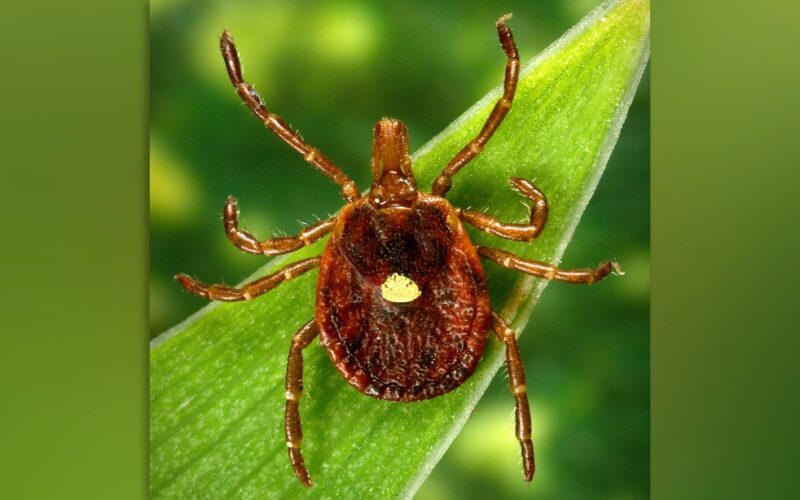A man from New Jersey is believed to be the first person to die from a meat allergy triggered by a tick bite, medical researchers confirmed this week.
After months of investigation, a team of scientists at the University of Virginia School of Medicine determined the 47-year-old airline pilot died from alpha-gal syndrome, an allergy to red meat and other products from mammals that can unknowingly develop after a tick bite.
According to researchers, the man, who has not been identified, had two extreme reactions to eating beef in the summer of 2024, after he’d been bitten multiple times by lone star ticks.
In the first incident, he experienced severe diarrhea, vomiting and stomach pain about four hours after having a steak during a camping trip with his family. Despite telling one of his sons that he thought he was “going to die,” the symptoms subsided after a few hours so he didn’t go see a doctor.
Two weeks later, in September 2024, the man again started feeling sick about four hours after eating a hamburger at a barbeque. His son found him unconscious on the bathroom floor with vomit around him and called 911. He was rushed to a hospital, but died less than three hours later.
The man’s death was seen as a mystery because there was no evidence of a heart attack or any other life-threatening issue. His wife, wanting answers, sought help from a pediatrician friend, who eventually got in contact with the Virginia researchers.
The scientists, analyzing a sample of postmortem blood, eventually made the connection between the meat consumption and the tick bites, concluding the man had experienced an allergic reaction — anaphylaxis — that wasn’t recognized as a possible cause of death in his autopsy.
The case is “notable because it is the first documented anaphylactic death related to [alpha-gal syndrome] where the symptoms started several hours after consuming mammalian meat,” the researchers wrote in The Journal of Allergy and Clinical Immunology, stressing the “major need for public education in areas where the tick is increasing.”
There have been more than 100,000 suspected cases of alpha-gal syndrome between 2010 and 2022, according to the Centers for Disease Control. Almost all cases in the U.S. are caused by lone star ticks, which are primarily found in the Northeast, South and Midwest.
The risk for the illness has increased as the ticks and white-tailed deer — their primary host — have migrated to new areas.








